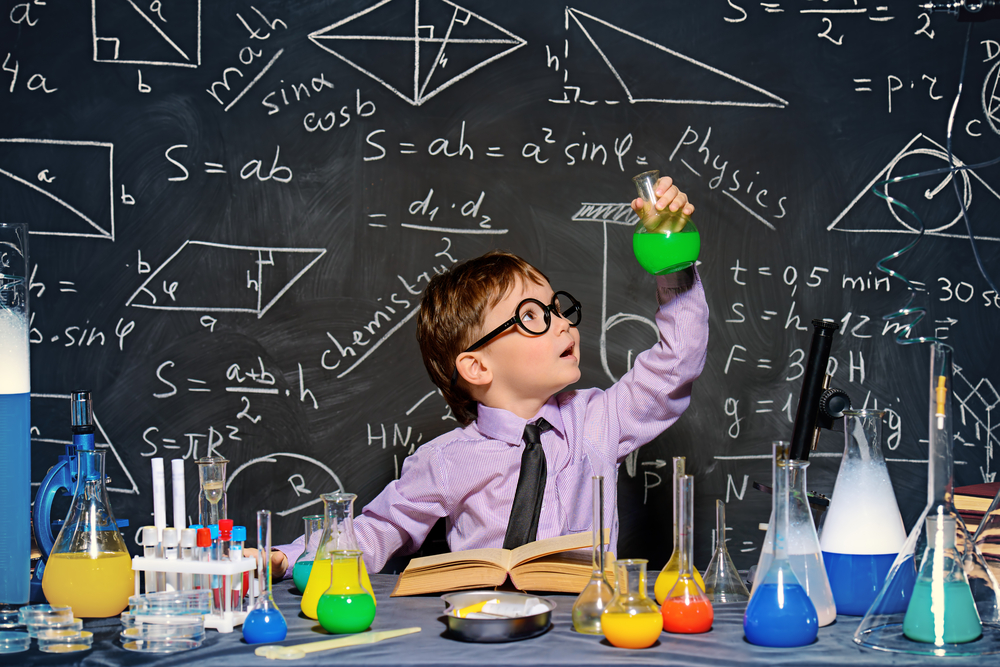Critical thinking skills Normal Science Worksheets for Ages 8-9
7 filtered results
-
From - To
Enhance your child's cognitive development with our Critical Thinking Skills Normal Science Worksheets tailored for ages 8-9. These worksheets from Kids Academy foster analytical skills, encouraging students to explore scientific concepts through engaging activities. Each worksheet is designed to challenge young minds, promoting inquiry, logical reasoning, and effective problem-solving. By integrating fun experiments and thought-provoking questions, our expertly crafted materials not only make learning science enjoyable but also lay a strong foundation for future academic success. Perfect for inquisitive minds, these worksheets will inspire your child to think deeply and understand the world around them. Discover a world of critical thinking today!
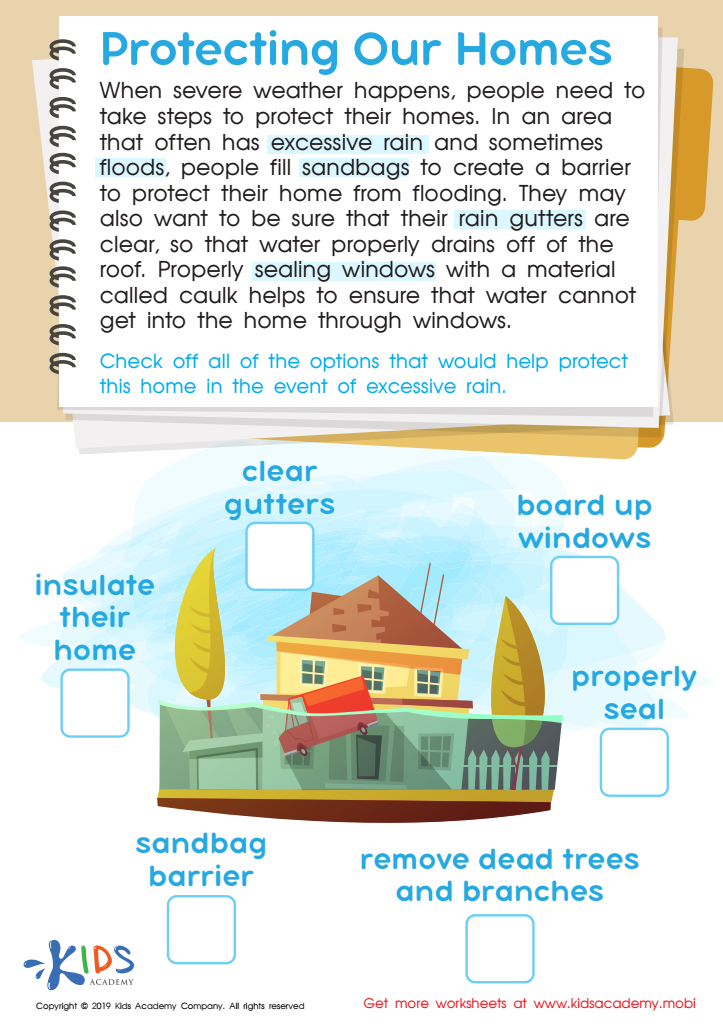

Protecting Our Homes Worksheet
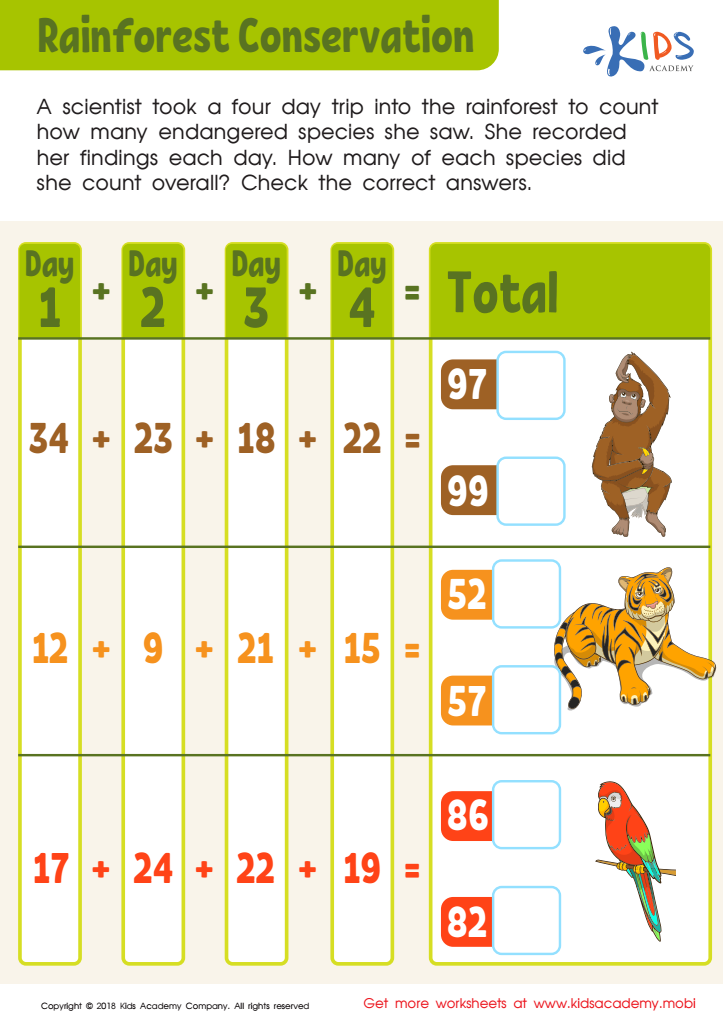

Rainforest Conservation Worksheet
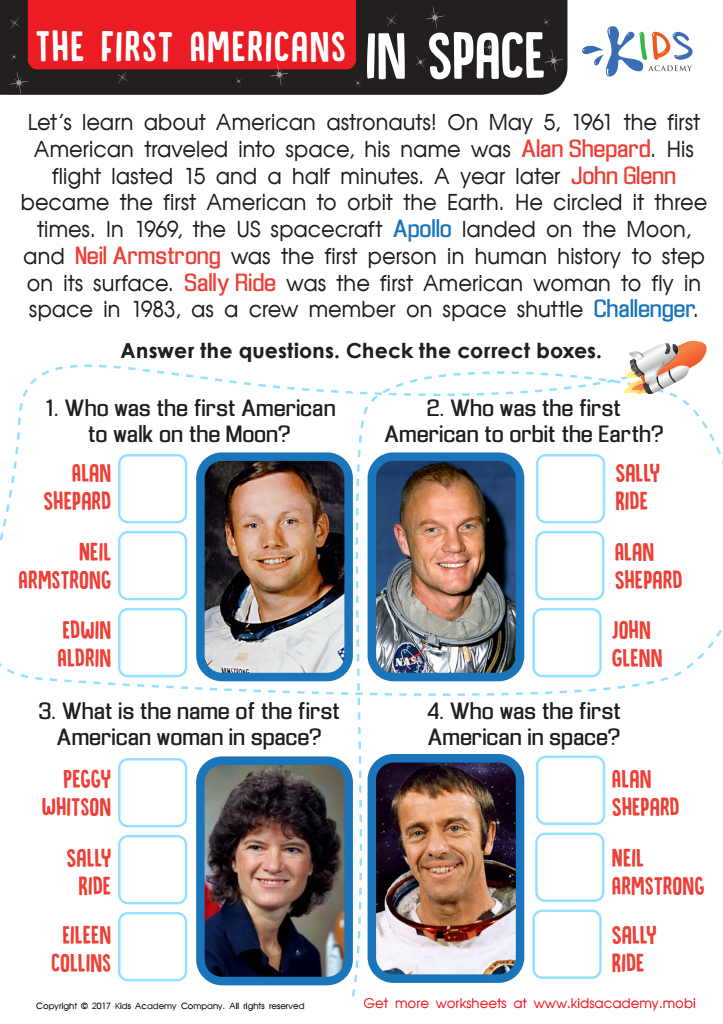

First Americans in Space Worksheet
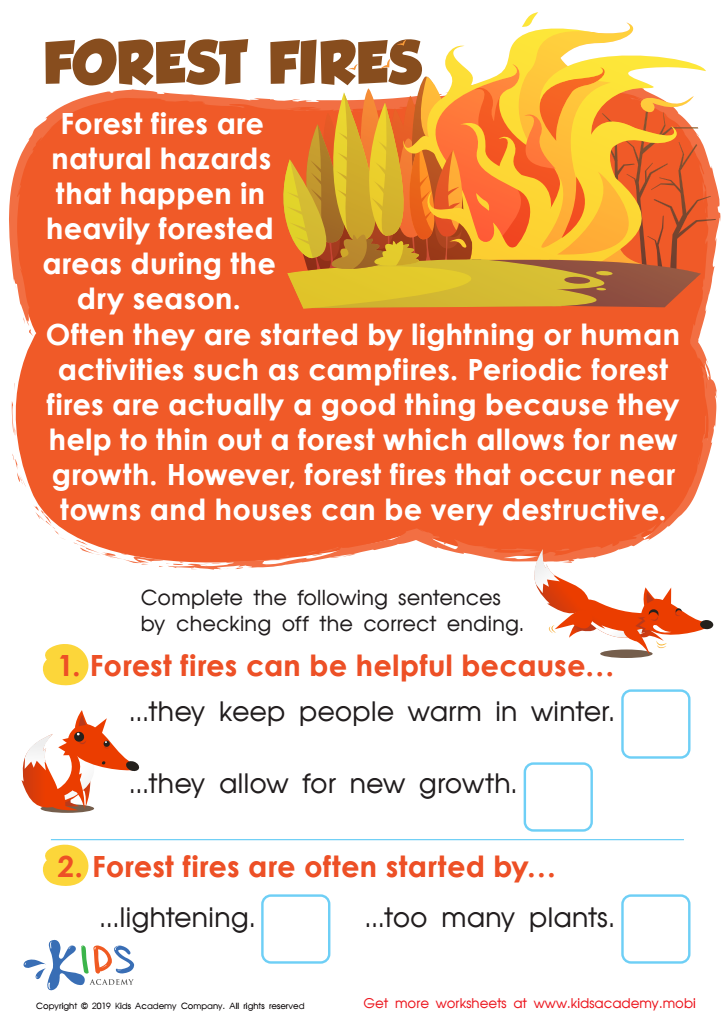

Forest Fires Worksheet
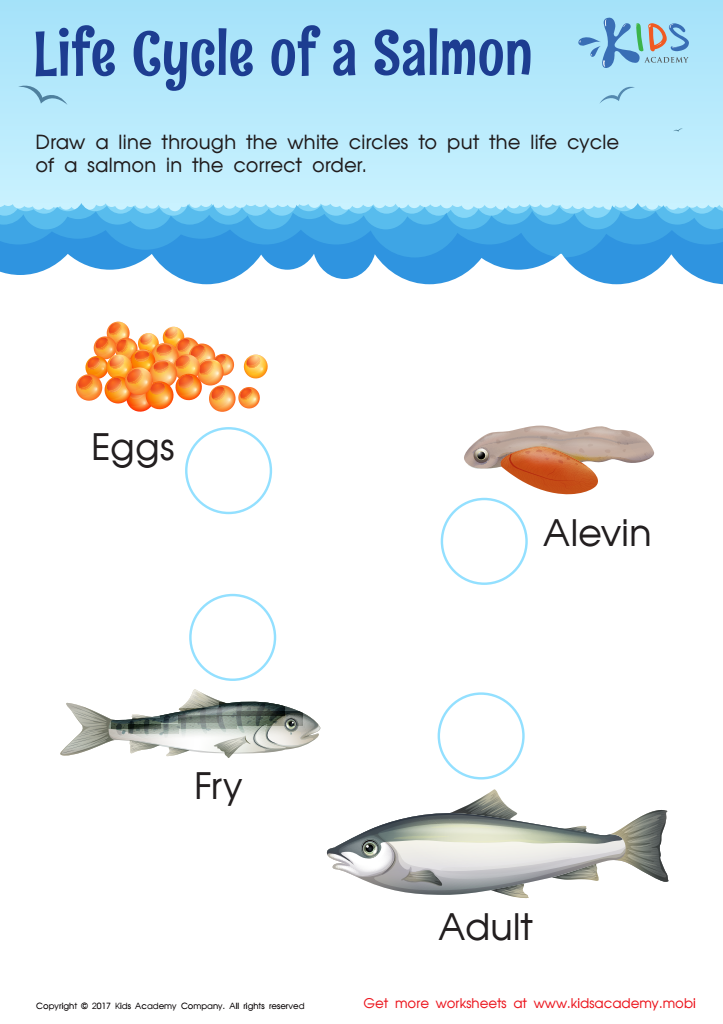

Cycle Of Salmon Worksheet
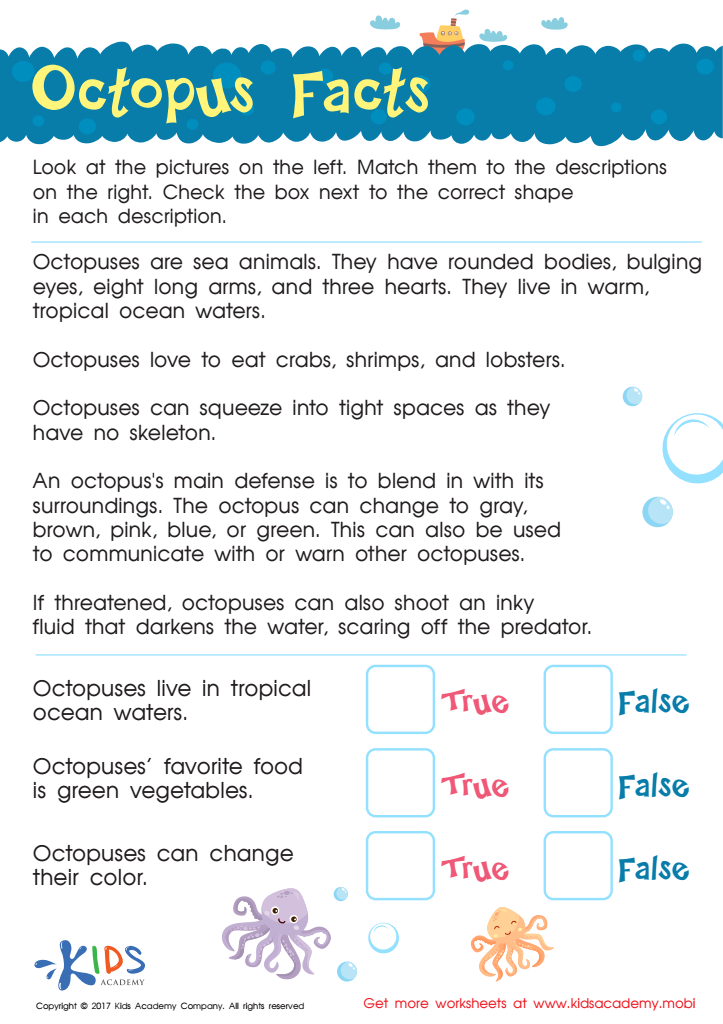

Octopus Facts Worksheet For Kids
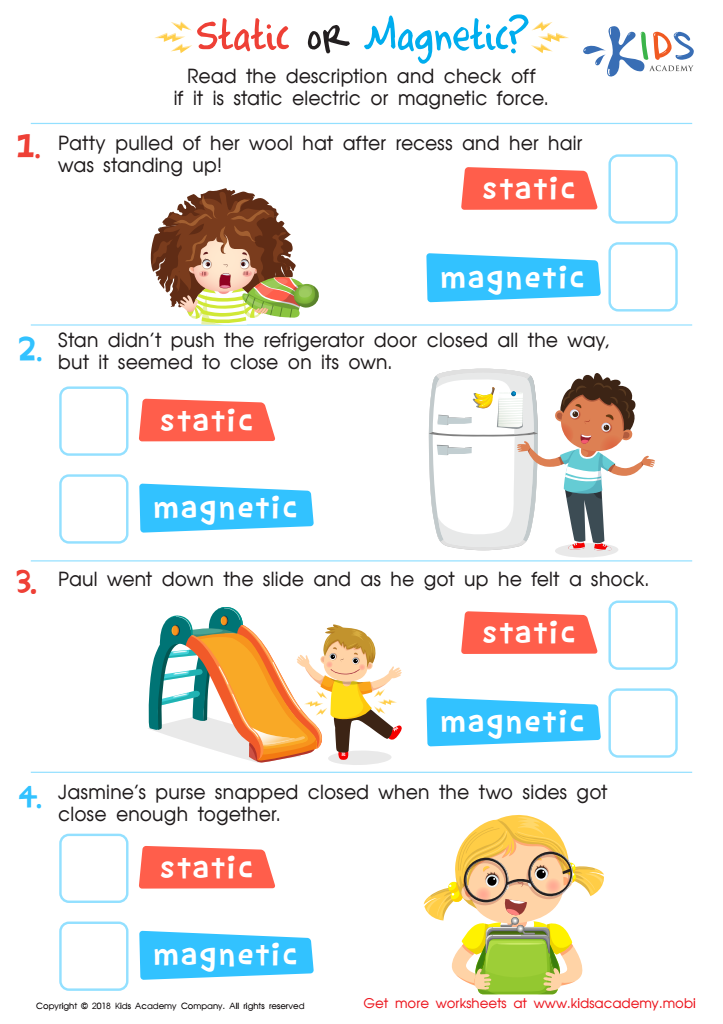

Static or Magnetic Printable Worksheet
Cultivating critical thinking skills in students aged 8-9 is essential for fostering intellectual growth and academic success. During these formative years, children are naturally curious and eager to explore the world around them, making it an ideal time to introduce the principles of critical thinking. By developing these skills early, children learn to analyze information, question assumptions, and make reasoned decisions. This not only supports their academic pursuits but also equips them with the tools needed for problem-solving in everyday life.
For both parents and teachers, investing in the critical thinking capabilities of young learners means helping them become more independent and resilient. When children can approach problems analytically, they build confidence in their abilities and show improved performance in subjects like science, math, and reading. In the context of normal science, for instance, understanding the scientific method teaches kids to form hypotheses, conduct experiments, and draw conclusions based on evidence, which are fundamental aspects of critical thinking.
Moreover, these skills contribute to emotional intelligence, as they encourage empathy and understanding different perspectives. Encouraging children to think critically not only lays a strong academic foundation but also prepares them for real-world challenges, nurturing responsible, thoughtful, and engaged citizens. By prioritizing critical thinking, parents and teachers help young learners develop a lifelong love for learning and discovery.
 Assign to My Students
Assign to My Students










